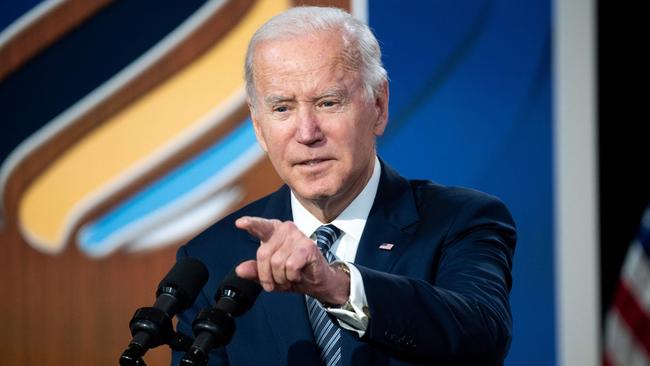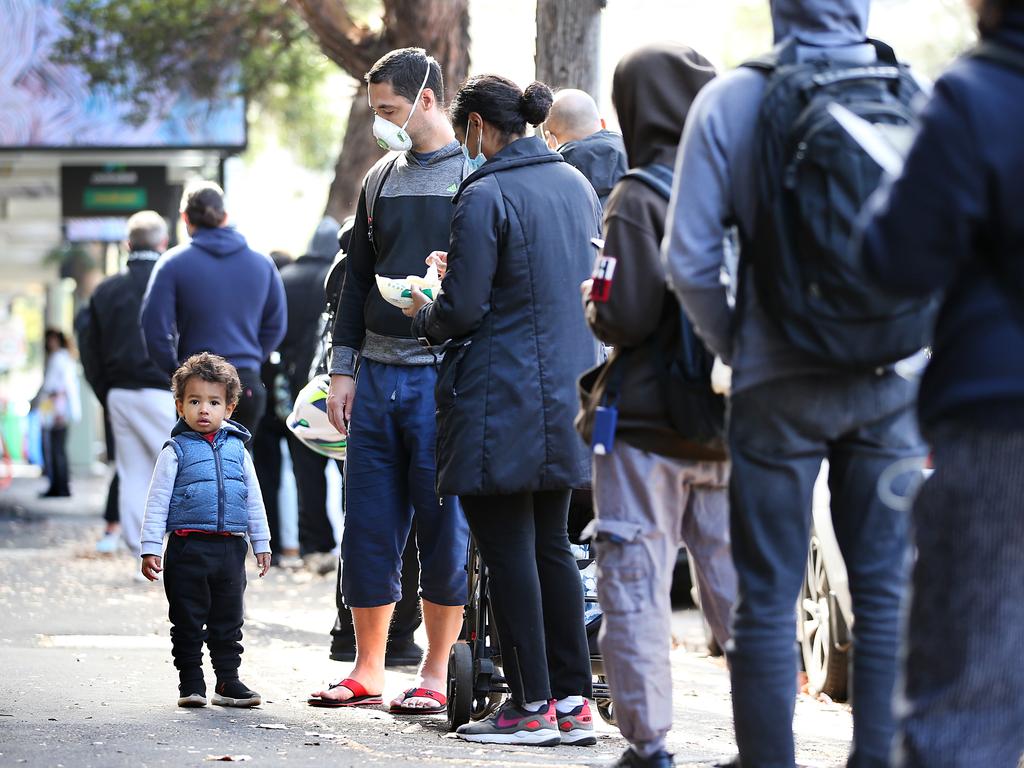Joe Biden on the defensive as US inflation skyrockets
US inflation rises to highest level in almost 40 years, worsening a political headache for President Joe Biden.

Inflation in the US has risen to the highest level in almost 40 years, worsening a political headache for President Joe Biden and putting pressure on the Federal Reserve to end its bond buying program faster.
Consumer prices in the US rose 6.8 per cent over the year to November, the quickest pace since June 1982, and up from 6.2 per cent in October.
Inflation has been above 5 per cent in the US for six months in a row, wrong-footing the Federal Reserve whose chairman Jerome Powell last week had to walk back an early claim inflation would be “transitory”.
President Biden, whose popularity has been sinking in recent months alongside increased focus on inflation, said November’s figures ignored more recent signs prices were starting to decline.
He said half the overall price increase in November stemmed from used cars and energy, which had increased 31 and 33 per cent, respectively, over the past year.
“Since then, we have seen significant energy price reductions. Gas [petrol] prices nationally are down from their peak; prices in 20 states are already below their 20-year average and the price of natural gas is down 25 per cent from its November average,” the President said in a statement.
“We are making progress on pandemic related challenges to our supply chain which make it more expensive to get goods on shelves, and I expect more progress on that in the weeks ahead,” he added.
On a monthly basis, the CPI increased a seasonally adjusted 0.8 per cent in November from the prior month, about the same as October’s 0.9 per cent increase. Core inflation, which strips out energy and food, increase 4.9 per cent over the year, also a multi decade high.
“These are frighteningly high inflation numbers, the likes of which we haven’t seen for decades,” said Allen Sinai, chief global economist and strategist at Decision Economics, Inc.
Rising prices have significantly undermined the President’s standing with voters.
A new CNBC poll, released a few hours before the Bureau of Labor Statistics released the latest inflation figures, found 37 per cent of Americans approved of the president’s handling of the economy, down from 52 per cent in April.
Four in 10 Americans say inflation is having a “major impact” on their household finances, according to a separate AP-Norc poll published a day earlier.
The new inflation data convinced banking giant JP Morgan to bring forward its expectation of when the Fed will start lifting interest rates from 0 per cent, from September next to June.
The higher inflation figures for November will put extra pressure on the Fed to wind down its bond buying program, which has been pumping almost $120bn a month of new money into the US economy since the start of the pandemic, even faster than it has already promised to.
“Almost all forecasters do expect that inflation will be coming down meaningfully in the second half of next year,” Mr Powell said last week in Congressional testimony. “The point is we can’t act as though we’re sure of that,” he added.
The US 10 year bond yield fell a little to 1.48 per cent after the release of the November inflation figures, reflecting the view in financial markets that inflation will decline next year, and that interest rates will not have to rise significantly.
Economists differ on what has caused the sudden rise in prices.
“We have tremendous spending by consumers. A lot of people are getting hired. Demand is huge. Monetary policy remains very easy and fiscal stimulus has no precedent in history,” Mr Sinai said.
Steve Hanke, a professor of Applied Economics at Johns Hopkins University, said the rise in inflation, rather, had been caused by the massive increase in the US money supply by the Federal Reserve to accommodate the federal government’s large deficits, rather than supply bottlenecks caused by the pandemic, or a sudden increase in demand.
“I think we’re going to see one of the biggest bond market train wrecks in history within a year,” he told The Australian, suggesting inflation would turn out to be around 6 per cent for the next few years, rather than the 2 per cent implied in the bond market.
M2, a measure of the money supply, has jumped from $16 trillion to $21 trillion since the beginning of last year.
“I don’t see Australia as having a particular inflation problem like the US, because monetary growth there has not been as great,” he added.







To join the conversation, please log in. Don't have an account? Register
Join the conversation, you are commenting as Logout